Introduction
Understanding Bichon Frise exercise needs is essential for keeping them fit and healthy.
- Regular exercise is vital to maintain their health and happiness
- Exercise helps prevent obesity, boredom, and behavioral problems
- This breed enjoys short bursts of activity and playful interactions
- Consistent exercise keeps their energy balanced and temperament positive
- Learn how to meet your Bichon Frise's exercise needs to keep them fit
1. Understanding Bichon Frise Energy Levels

Understanding Bichon Frise exercise needs is closely linked to recognizing their energy levels.
- Daily Activity Requirements: Bichon Frises need 30-60 minutes of exercise
- Energy Spikes: They often have bursts of high energy during playtime
- Indoor Play: Indoor games like fetch or hide-and-seek keep them active
- Outdoor Walks: Daily walks help burn energy and stimulate their minds
- Calming Exercises: Activities like scent work can mentally tire them
- Routine Variety: Mixing activities keeps your Bichon Frise interested
- Monitoring Fatigue: Watch for signs of tiredness to avoid over-exercising
- Consistency Matters: Keeping a regular schedule helps maintain fitness
2. Types of Exercises Suitable for Bichon Frise
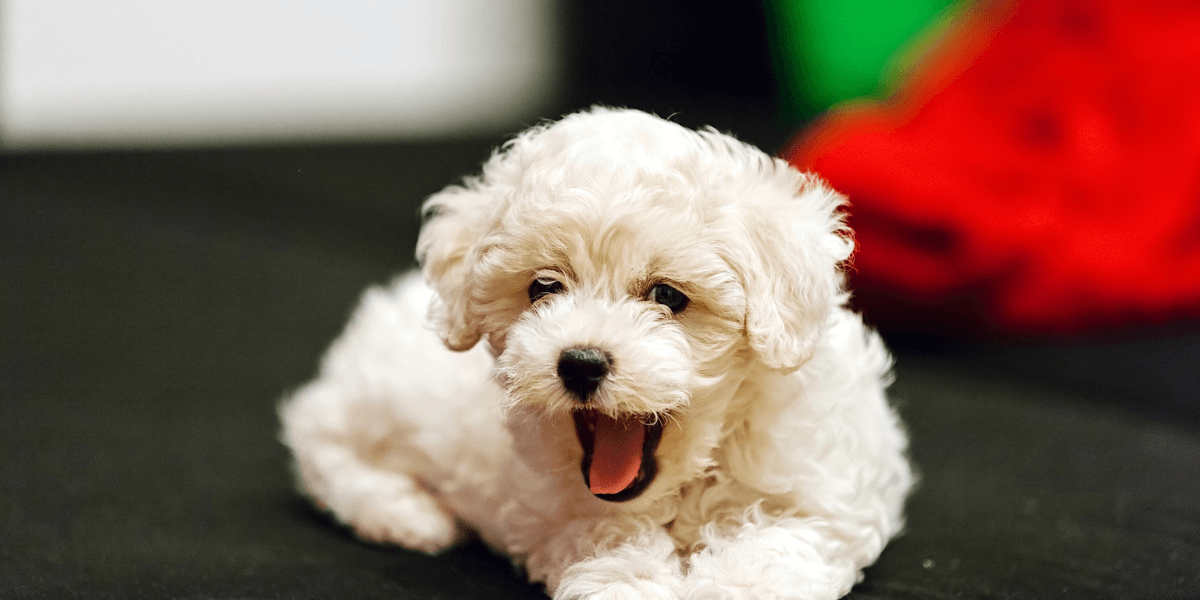
Different exercises can cater to the Bichon Frise’s playful and active nature.
- Short Walks: 20-30-minute walks twice daily are ideal for this breed
- Interactive Toys: Puzzle toys provide mental stimulation and fun
- Play Dates: Socialization with other dogs can keep them engaged
- Fetch Games: A quick game of fetch helps them burn excess energy
- Training Sessions: Short training sessions offer exercise and learning
- Indoor Agility: Low-impact agility courses are great for small spaces
- Tug-of-War: Gentle tug games can provide both fun and exercise
- Swimming: Low-impact swimming exercises can be beneficial and refreshing
3. Benefits of Regular Exercise for Bichon Frise
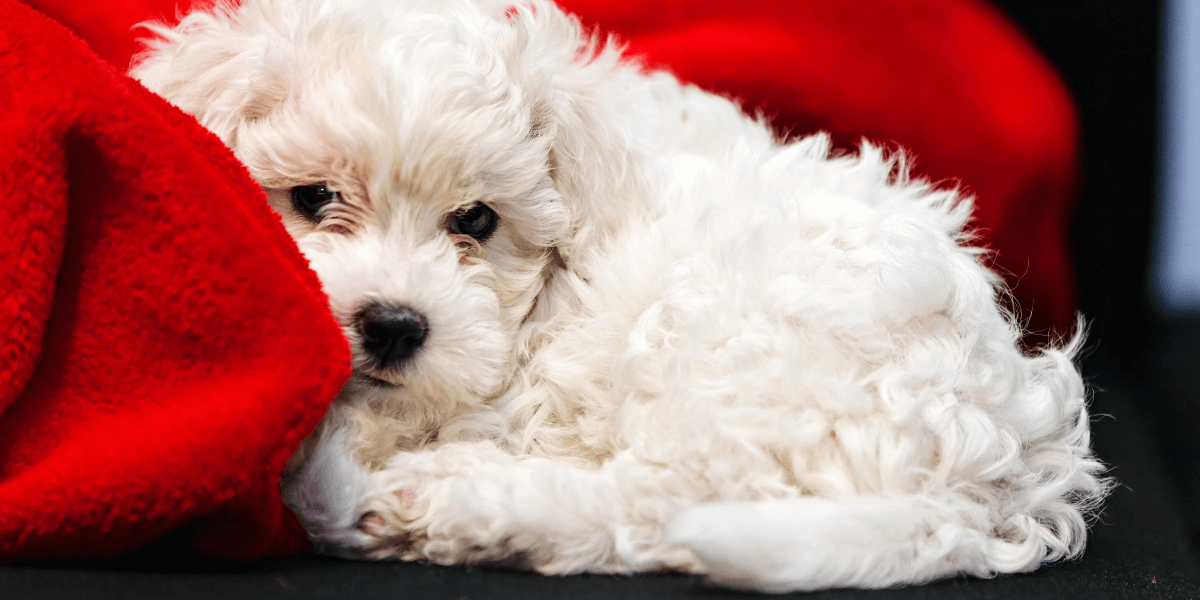
Regular exercise provides many physical and mental health benefits.
- Weight Management: Prevents obesity by burning excess calories
- Joint Health: Keeps muscles strong and joints flexible
- Mental Stimulation: Reduces boredom and prevents destructive behavior
- Social Skills: Regular walks help improve their social interactions
- Better Sleep: Tired dogs tend to have a better sleep cycle
- Improved Mood: Exercise boosts endorphins, enhancing their mood
- Heart Health: Physical activities promote cardiovascular health
- Behavioral Benefits: Active dogs are less likely to develop bad habits
4. Signs Your Bichon Frise Needs More Exercise
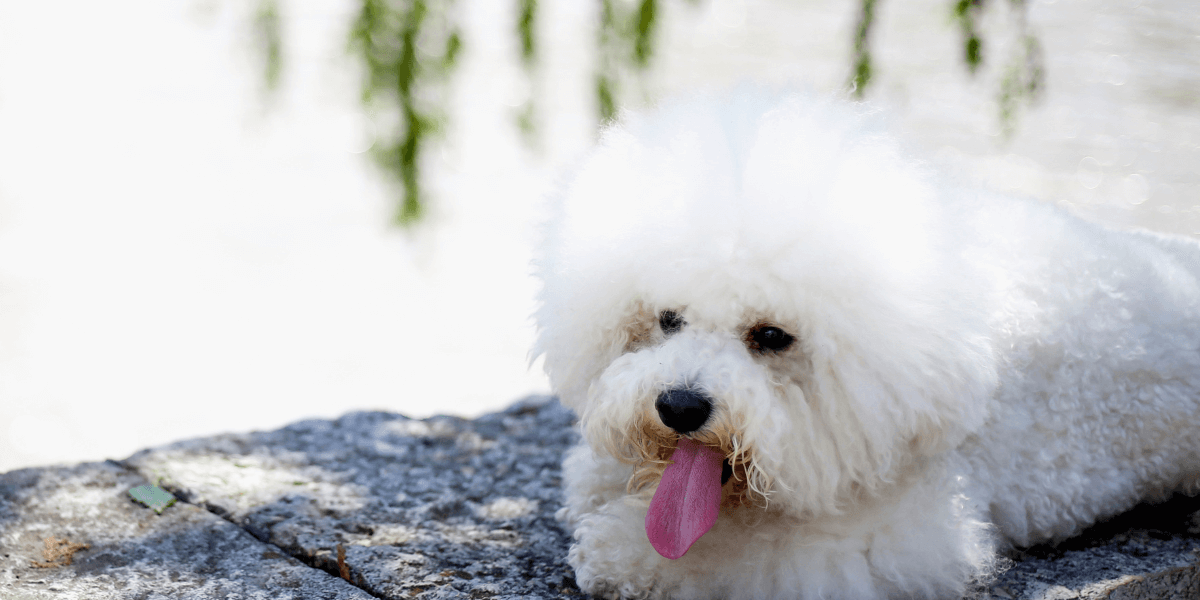
Recognizing the signs that your Bichon Frise needs more exercise is crucial to meeting their health requirements.
- Restlessness: A restless dog may need more physical exercise
- Excessive Barking: Extra barking can indicate pent-up energy
- Destructive Behavior: Chewing or digging might mean they need more playtime
- Weight Gain: A sedentary lifestyle can lead to weight issues
- Hyperactivity: Over-excitement may suggest inadequate exercise
- Poor Sleep Patterns: Lack of sleep can result from too little activity
- Attention Seeking: Constant attention-seeking might mean they are bored
- Anxiety Signs: Pacing or whining may suggest they need more exercise
Learn how to prevent and manage hip dysplasia in Great Danes to keep your dog healthy and active.
5. Safety Tips for Exercising Your Bichon Frise
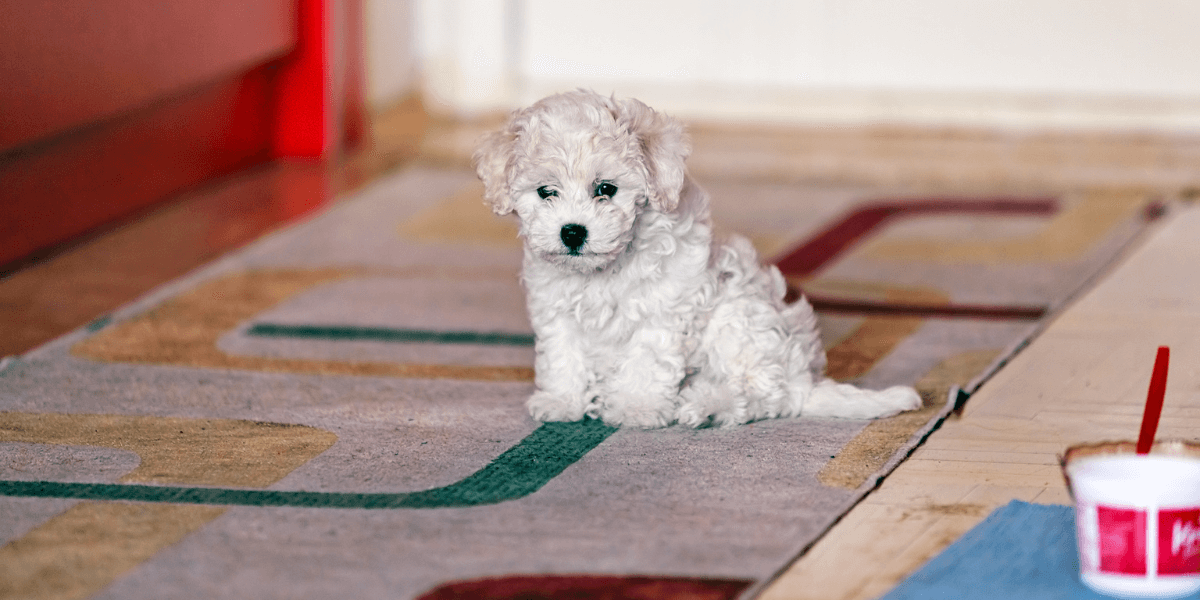
Exercising safely ensures your dog remains healthy and injury-free.
- Avoid Overexertion: Limit intense exercise during hot weather
- Stay Hydrated: Always provide fresh water after exercise
- Use Proper Leashes: A comfortable leash is key for outdoor walks
- Paw Protection: Protect paws from hot pavement or rough surfaces
- Watch for Signs of Fatigue: Know when to stop and let them rest
- Regular Checkups: Consult a vet if new exercise routines are planned
- Low-Impact Options: Choose exercises that suit their size and ability
- Monitor Weather Conditions: Avoid extreme weather during exercise
6. Best Times to Exercise Your Bichon Frise
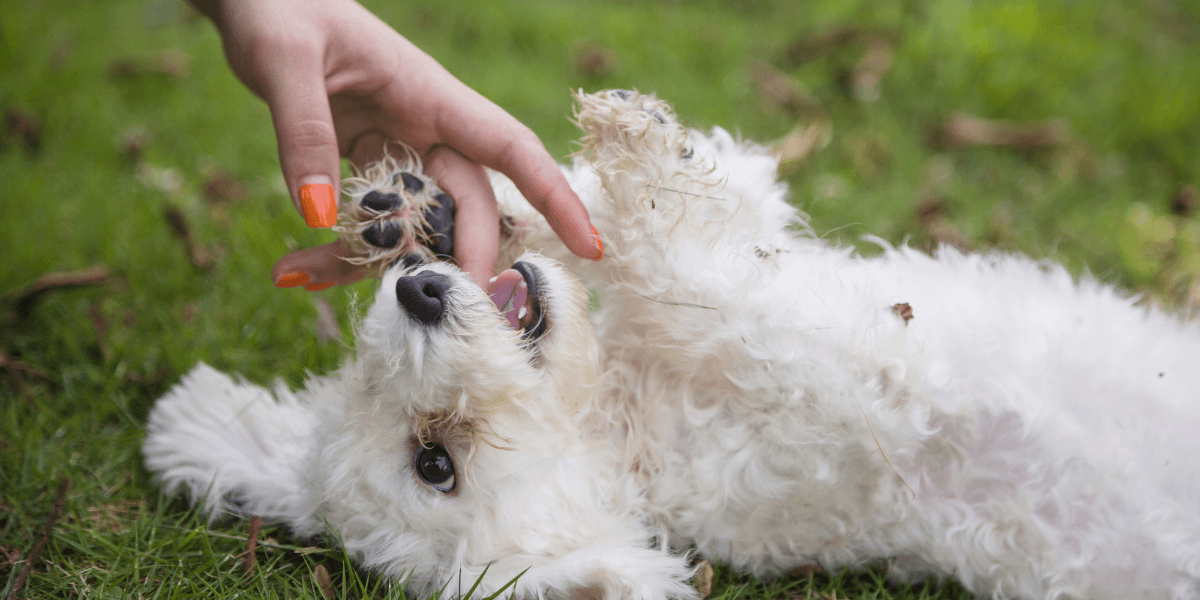
Understanding the best times to exercise your Bichon Frise is key to effectively meeting their exercise needs.
- Morning Walks: Cooler temperatures are ideal for morning exercise
- Evening Playtime: Evening activities help tire them before bedtime
- Midday Breaks: Short bursts of activity during the day can prevent boredom
- Indoor Options: Indoor activities are great during extreme weather
- Short Sessions: Keep sessions short to maintain interest and energy
- Consistency: Consistent exercise times help establish a routine
- Flexible Approach: Adapt exercise times to your dog’s energy levels
- Monitor Temperature: Exercise during cooler parts of the day
Discover the top 10 tips for raising a healthy Great Dane puppy and ensure your companion thrives.
7. Incorporating Mental Stimulation in Exercise

Incorporating mental stimulation in your dog's routine is a crucial part of fulfilling Bichon Frise exercise needs.
- Puzzle Games: Engage their minds with challenging puzzle toys
- Training Drills: Incorporate training into playtime for mental growth
- Hide-and-Seek: Hide treats around the house for them to find
- Scent Games: Use scent work to stimulate their sense of smell
- Interactive Toys: Interactive toys provide both mental and physical fun
- Learning Tricks: Teach new tricks to keep their brains active
- Variety of Games: Rotate games to keep them mentally engaged
- Playtime Bonding: Use exercise time to strengthen your bond
Explore German Shepherd Dog Grooming to keep your pup looking their best with these essential tips.
FAQs
1. How much exercise does a Bichon Frise need daily?
- About 30-60 minutes of varied exercise is recommended
2. Can Bichon Frises be over-exercised?
- Yes, watch for signs of fatigue and keep sessions manageable
3. Are Bichon Frises good for agility exercises?
- Yes, but low-impact agility suited to their size is ideal
4. Can indoor activities meet a Bichon Frise's exercise needs?
- Yes, combine indoor games with short walks for a balanced routine
5. Is swimming good exercise for Bichon Frises?
- Yes, swimming is low-impact and can be great exercise
6. What are the signs that a Bichon Frise needs more exercise?
- Restlessness, excessive barking, and destructive behavior can indicate this
7. When is the best time to exercise a Bichon Frise?
- Early mornings and evenings when temperatures are cooler are ideal
Conclusion
- Meeting your Bichon Frise exercise needs is crucial for their overall health
- Regular activity helps maintain their weight, mood, and behavior
- Incorporate a mix of physical and mental exercises to keep them engaged
- Always monitor for signs of over-exertion or boredom
- Keep routines consistent and adapt to their individual needs
- Start exercising with your Bichon Frise today for a happier, healthier pet



